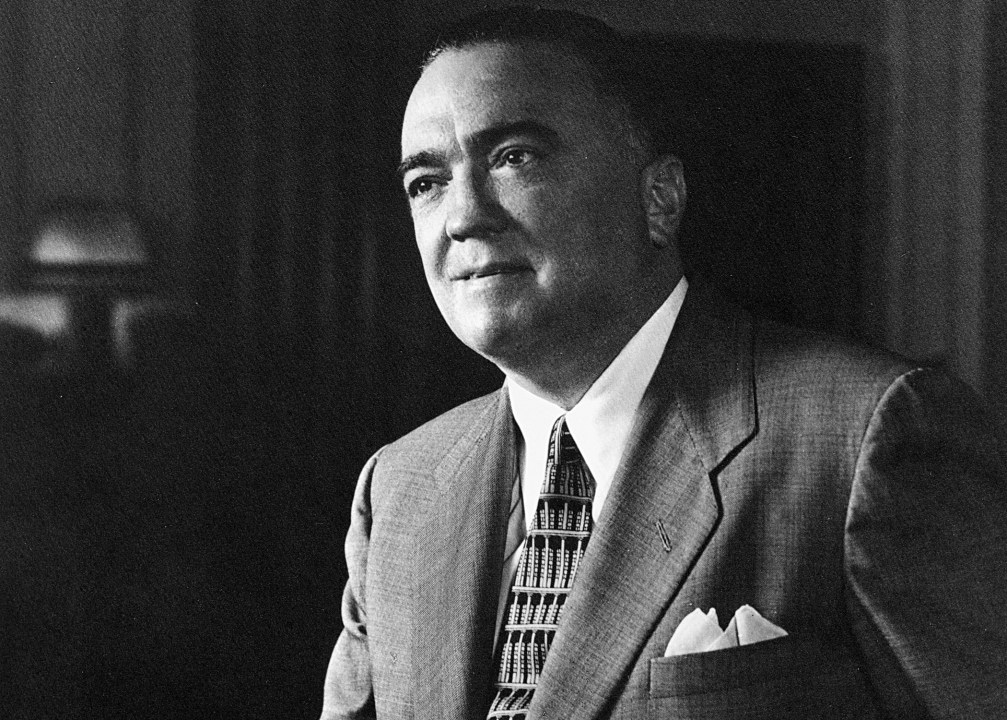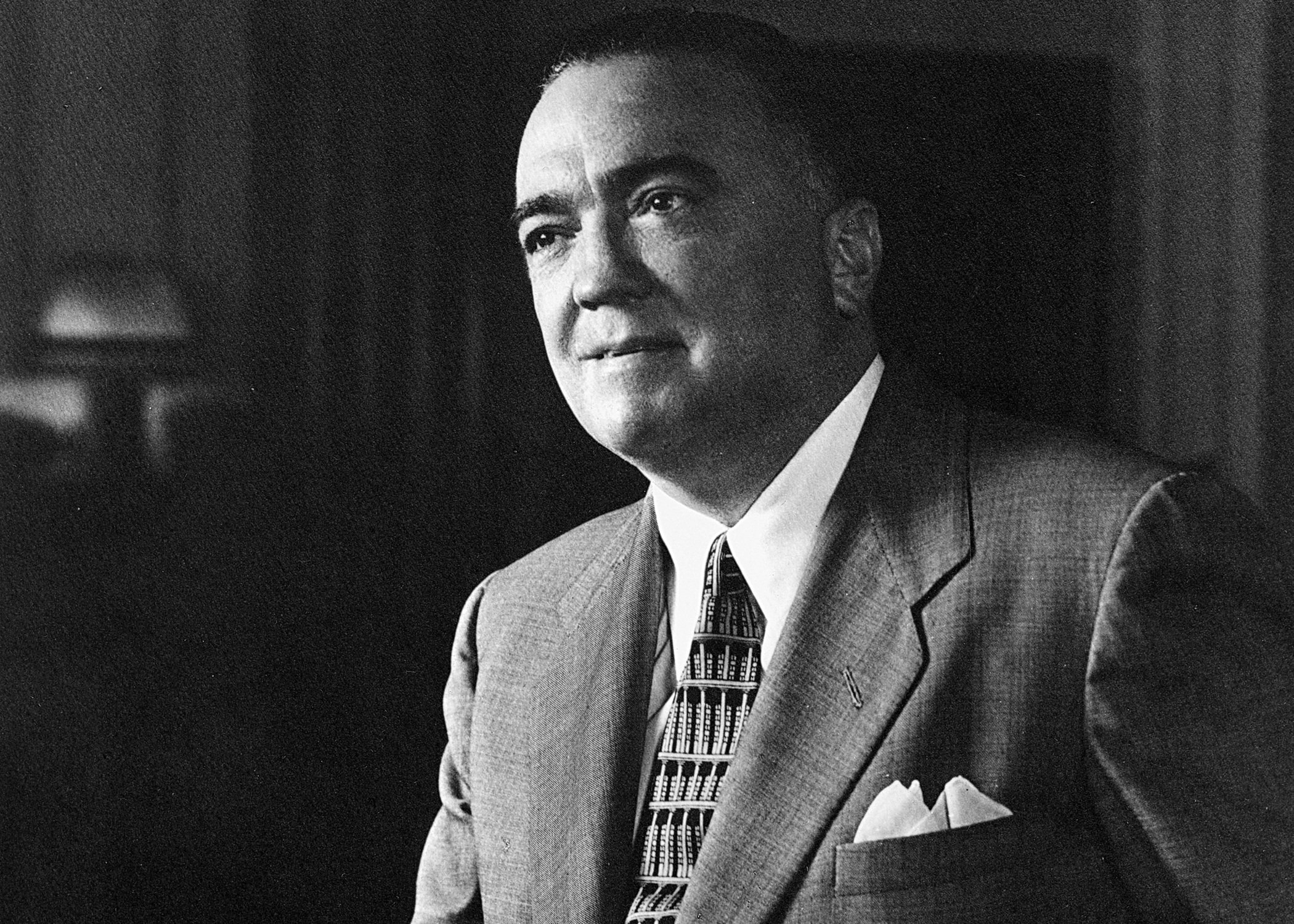It was a glorious spring day, but Tim Weiner was thinking about the folly of men. “It’s a beautiful day outside. I go past a statue of [Field Marshal] Haig and I remembered all those poor bastards who died on beautiful spring days.”
Weiner has made a career documenting folly — and deceit. He won the Pulitzer Prize in 1988 reporting on black budget spending at the Pentagon and the CIA, and has spent the succeeding 24 years examining the American intelligence community. He is in London promoting his latest book, Enemies: A history of the FBI.
Enemies is a history that moves at the pace of a James Ellroy novel. But Weiner’s truth is wilder even than Ellroy’s fiction. Weiner sets the record straight on the FBI’s first 100 years using only the Bureau’s documents and oral testimony, most of which has never been seen. He offers no opinions, just facts.
“We Americans want to believe that the government doesn’t spy on us. We want to believe that the government represents the rule of law. This is a child’s version of history.”
The FBI was formed by President Theodore Roosevelt to control anarchists and plutocrats. Its first century is a story of subtle espionage driven by fear of threats, both real and imagined. Most of this spying was on Americans, and most of it was illegal. But there is a sense that the evil was necessary.
“It’s easy to look back,” Weiner said. “It’s a bright sunny day and the road is clear. But when they’re living it, it’s a dark and stormy night. You can feel the fear in the documentation. In the intelligence files of J. Edgar Hoover — his handwriting and commands on the hundreds of thousands of documents — it’s like looking over his shoulder and listening to him think aloud.”
Hoover marches across the book, a suited colossus tearing through history. Weiner regards Hoover as “the greatest American spymaster of all time” and the man who created the “culture of surveillance” in which we live.
Hoover lived to serve the president, particularly those with whom he had a good rapport and understanding: FDR, Eisenhower, LBJ and (for a time) Nixon. Those presidents respected Hoover (LBJ recommended him to Nixon as ‘a pillar of strength in a city of weak men’) because of his devotion to the presidency. (You can spy on that relationship by listening to this electric recording of LBJ, hours after signing the Civil Rights Act on 2nd July 1964, urging the reluctant Hoover to confront the Klan in Mississippi.)
Hoover emerges from the book, not as the monster of popular myth, but as a dexterous operator. This should not be surprising, given that he thrived in Washington for 50 years. Even in his mid-seventies, his mind was sufficiently agile to discern that the civil rights movement had altered the politics of state surveillance by entrenching concern for civil liberties. This was revealed during the Nixon administration. Weiner explained:
“Nixon tells him that he doesn’t just want to bug and wiretap and break into the houses of targets, he wants Hoover to enter the homes of friends and family of the targets without judicial warrants. Hoover had been doing that for fifty years, but he turns Nixon down. So what does Nixon do? He creates his own little bucket shop, the Plumbers. And 6 weeks after Hoover dies [on 2nd May 1972, aged 77], they get caught breaking into Watergate.”
Hoover saw the danger and would not risk Nixon’s paranoid gamble.
Watergate is the most famous example of what Weiner calls “the war between the rule of law and executive power”. The early FBI broke the law as a matter of course, but civil rights seem to have been a watershed after which it sometimes sided against the executive. Senior FBI officers fed Woodward and Bernstein the information that brought down Nixon; the Bureau was ‘Deep Throat’. The FBI then clashed with President Reagan over arms to Iran. And President Clinton was pursued remorselessly — over campaign contributions, allegations of corruption and the Lewinski case. The drama reached its height when FBI agents superintended the extraction of a DNA sample from the president’s arm in the Map Room of the White House.
This dysfunction contributed to the decade long intelligence failure that led to 9/11 — and the FBI’s fraught and inept collaboration with the CIA also played its part. But complacency was the greatest foe. The US, like the rest of the West, had fallen into a dreamless sleep after the fall of the Berlin Wall. Weiner, who shuttled between Washington and New York immediately after 9/11, recalled the rude awakening.
“The fear that there was a nuclear bomb or a biological weapon, it was murderous. Every time the telephone rang, you thought, ‘This is it. Here it is.’ And this is what drove the Bush administration mad with fear. That is not a figure of speech. It got out of control.”
Even the most casual observer would have noticed that the Bush administration responded to 9/11 with a vast assault on the rule of law, both at home and abroad. ‘Round up the evildoers’ was President Bush’s rallying cry.

But the FBI, under the dynamic leadership of Robert Mueller (pictured above with Bush), thought the policy harmful. In October 2002, agents compiled a dossier on what they found in military and CIA installations at Guantanamo Bay and titled it: ‘War Crimes’. It was one of many direct confrontations. Mueller’s conviction and confidence was such that on 11 March 2004, he confronted President Bush in the Oval Office and threatened to resign unless the ‘Stellar Wind’ electronic surveillance measures were downscaled. They duly were. The Bureau also reported the infamous crimes at Abu Ghraib up the chain of command, and complained generally about information obtained by duress.
Mueller is Octavian to Hoover’s Julius Caesar. He assumed command of the Bureau on 4th September 2001. It was demoralised after 20 years of failure and political enmity. Then came 9/11, and he found that his agency was not the global intelligence service the US required. Weiner described the transformation Mueller delivered:
“There were, I believe, 2 level 5 Arabic speakers at the FBI ten years ago. There are a lot more now…Hoover’s FBI was 99 per cent white, 100 per cent male and they only spoke English, sometimes poorly. Mueller’s FBI is a global intelligence service that has learned through great struggle and personal experience to talk in more than one language.”
Mueller’s achievement, Weiner said, was to remove ideology from intelligence. “If there’s one thing I’ve learned, it’s that ideology is the enemy of intelligence, because preconceptions and fixed ideas mean that it doesn’t matter what the enemy thinks.”
This criticism of the Bush administration developed as we discussed the Afghan conflict, which Weiner has covered extensively. “Folly,” he said. Then he paused for a long time and said gravely: “This is how empires fall. Folly among leaders is the deliberate decision to act against the interests of the state.” The deserts of Afghanistan are America’s version Haig and the slaughter in Flanders. “We are beginning to learn [what everyone from Alexander the Great has learned] that you cannot occupy Afghanistan.” The real crime is that “anyone who had spent any time there knew in the first place that eventually we’d get tired and leave.”

The implication is that the ideological decisions to overextend abroad and curb liberty at home were born of bad intelligence. “The reason you need good intelligence,” Weiner insisted, “is to keep from killing yourself. Do you think some jihadi can destroy American democracy? No, only we can do that.” I asked if that is why the balance between national security and civil liberties is vital. Weiner replied, “Yes. Yes, exactly.”
This explains Robert Mueller’s continued importance as director of the Bureau until 2013. Weiner predicted: “There is no doubt in my mind that he will go down as the greatest leader of the FBI in history.” And he added: “If we don’t get attacked again.” The balance between security and liberty is delicate because the consequences of error are great.







Comments